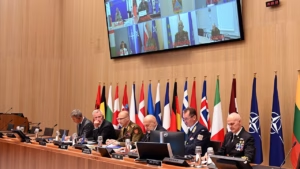Chicago Sun-Times, one of Illinois’ leading newspapers, has confirmed that a summer reading list published by them featured several fictitious book titles. The list, which included books that do not exist, was created using artificial intelligence (AI) by a freelancer working with one of their content partners. This has led to criticism on social media, with some users questioning the use of AI software like ChatGPT and the absence of fact-checking.
The newspaper received backlash after several fake titles were attached to real authors, a phenomenon known as “AI hallucination.” The article also included descriptions for the fake books and reasons why readers may enjoy them. However, it did include a few legitimate book titles like Atonement by Ian McEwan.
Others pointed out that the use of AI throughout the newspaper’s summer section was prevalent. Screenshots of articles such as “Summer food trends” and “Ideas to spruce up one’s back yard” showed quotes from nonexistent individuals, like a supposed Cornell University food anthropologist named Catherine Furst and a FirepitBase.com editor named Daniel Ray, who do not exist at the universities respectively.
In response, the Chicago Sun-Times addressed the controversy on social media. They claimed that the content was not created or approved by their newsroom but by a nationally-recognized content partner and syndicated to the newspaper. The publication added that this should serve as a learning moment for journalism, valuing the relationship between audiences and human reporters and editors.
The AI-generated stories were also syndicated outside of Chicago, with publications like the Philadelphia Inquirer accused of carrying the same fake reading list. The issue raises concerns about journalistic integrity, especially at a time when libraries and their budgets are under threat.
The Chicago Sun-Times has pledged to ensure such incidents do not happen again and will be updating their policies regarding third-party licensed editorial content. The newspaper, which traces back to a 1948 merger, is the second largest in Windy City, following the Chicago Tribune.
The rise of AI content poses ongoing challenges for newsrooms, with some newspapers openly utilizing the technology and even advertising job postings for “AI-assisted reporters.”
Source: https://www.theguardian.com/us-news/2025/may/20/chicago-sun-times-ai-summer-reading-list








